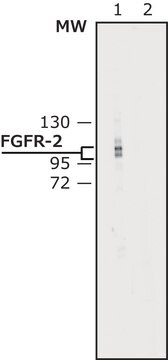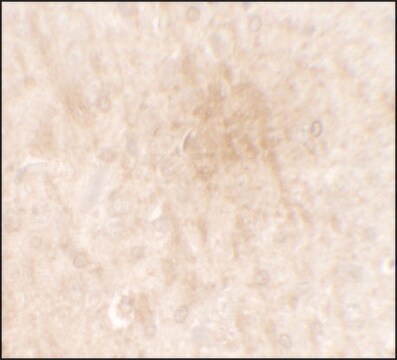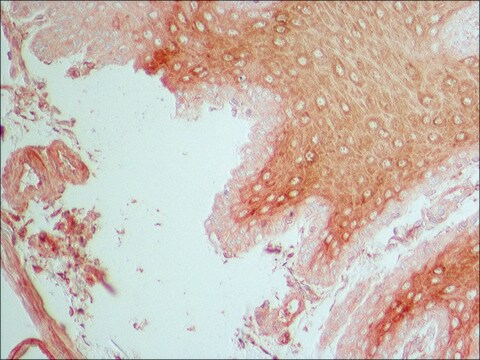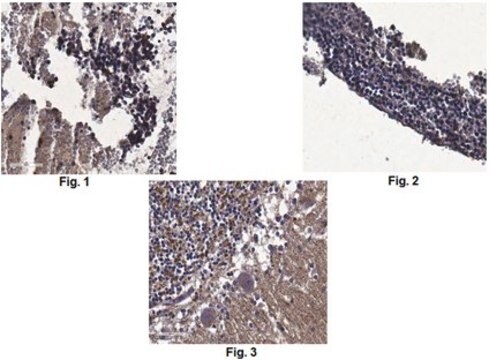F3922
Anti-Fibroblast Growth Factor Receptor-3, Extracellular antibody produced in rabbit
affinity isolated antibody, buffered aqueous solution
Synonym(e):
Anti-FGFR-3
About This Item
Empfohlene Produkte
Biologische Quelle
rabbit
Konjugat
unconjugated
Antikörperform
affinity isolated antibody
Antikörper-Produkttyp
primary antibodies
Klon
polyclonal
Form
buffered aqueous solution
Mol-Gew.
antigen ~120 kDa
Speziesreaktivität
human
Methode(n)
immunohistochemistry (formalin-fixed, paraffin-embedded sections): 1:1,000 using protease-digested, human and animal tissue sections
western blot: 1:500 using extract of FGFR-3 transfected cells
UniProt-Hinterlegungsnummer
Versandbedingung
dry ice
Lagertemp.
−20°C
Posttranslationale Modifikation Target
unmodified
Angaben zum Gen
human ... FGFR3(2261)
Allgemeine Beschreibung
Immunogen
Anwendung
- immunoblotting
- immunohistochemistry
- immunoprecipitation
Biochem./physiol. Wirkung
Physikalische Form
Angaben zur Herstellung
Haftungsausschluss
Sie haben nicht das passende Produkt gefunden?
Probieren Sie unser Produkt-Auswahlhilfe. aus.
Lagerklassenschlüssel
10 - Combustible liquids
WGK
nwg
Flammpunkt (°F)
Not applicable
Flammpunkt (°C)
Not applicable
Analysenzertifikate (COA)
Suchen Sie nach Analysenzertifikate (COA), indem Sie die Lot-/Chargennummer des Produkts eingeben. Lot- und Chargennummern sind auf dem Produktetikett hinter den Wörtern ‘Lot’ oder ‘Batch’ (Lot oder Charge) zu finden.
Besitzen Sie dieses Produkt bereits?
In der Dokumentenbibliothek finden Sie die Dokumentation zu den Produkten, die Sie kürzlich erworben haben.
Unser Team von Wissenschaftlern verfügt über Erfahrung in allen Forschungsbereichen einschließlich Life Science, Materialwissenschaften, chemischer Synthese, Chromatographie, Analytik und vielen mehr..
Setzen Sie sich mit dem technischen Dienst in Verbindung.





